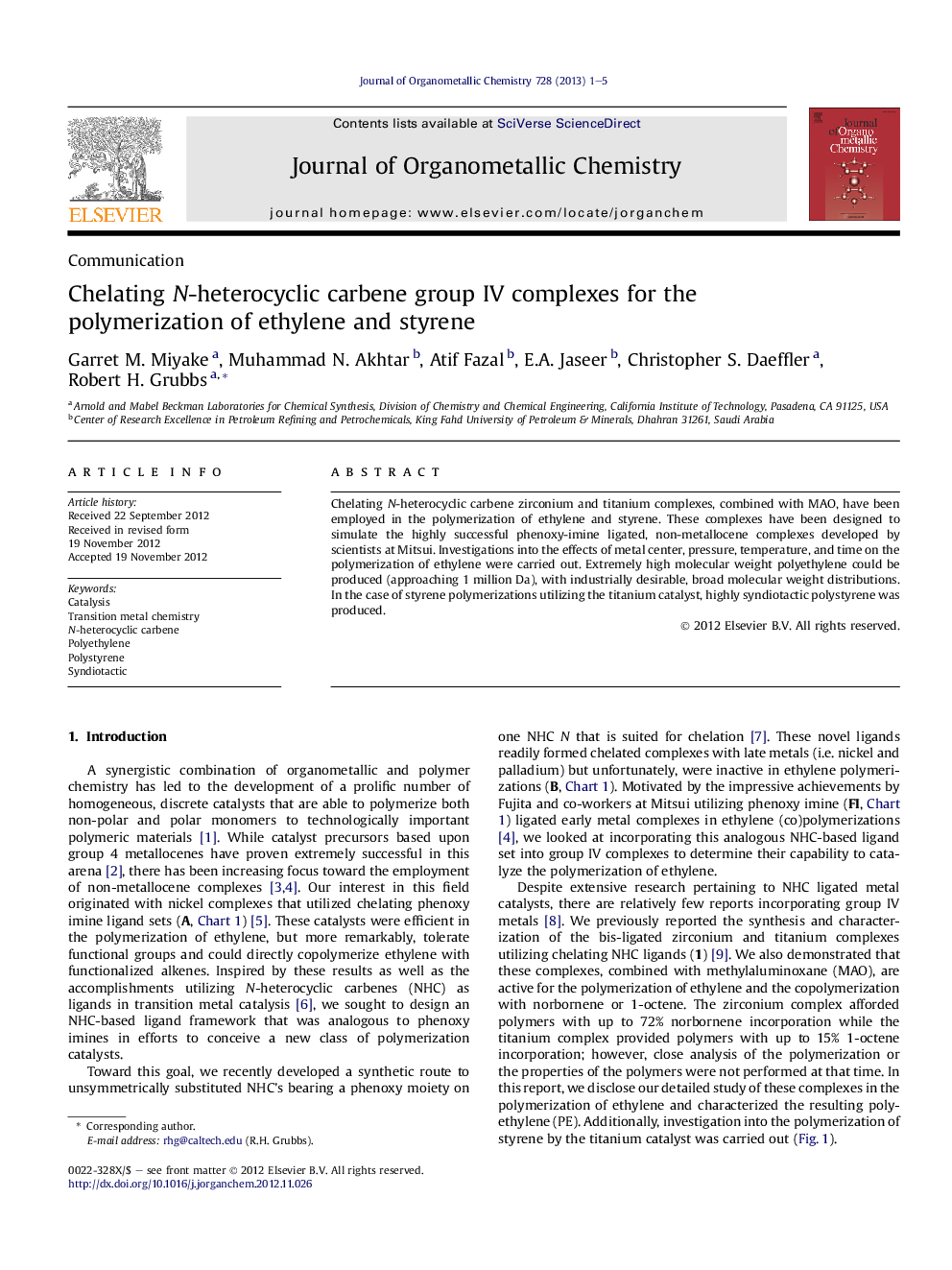| Article ID | Journal | Published Year | Pages | File Type |
|---|---|---|---|---|
| 1324598 | Journal of Organometallic Chemistry | 2013 | 5 Pages |
Chelating N-heterocyclic carbene zirconium and titanium complexes, combined with MAO, have been employed in the polymerization of ethylene and styrene. These complexes have been designed to simulate the highly successful phenoxy-imine ligated, non-metallocene complexes developed by scientists at Mitsui. Investigations into the effects of metal center, pressure, temperature, and time on the polymerization of ethylene were carried out. Extremely high molecular weight polyethylene could be produced (approaching 1 million Da), with industrially desirable, broad molecular weight distributions. In the case of styrene polymerizations utilizing the titanium catalyst, highly syndiotactic polystyrene was produced.
Graphical abstractChelating N-heterocyclic carbene zirconium and titanium complexes, in combination with MAO, have been employed in the polymerization of ethylene and styrene. Extremely high molecular weight polyethylene could be produced (approaching 1 million Da), with industrially desirable, broad molecular weight distributions. Highly syndiotactic polystyrene was produced by the titanium catalyst.Figure optionsDownload full-size imageDownload as PowerPoint slideHighlights► Novel chelating NHC group IV complexes were utilized in the polymerization of ethylene and styrene. ► High molecular weight linear polyethylene with industrially desirable broad molecular weight distributions was synthesized. ► The titanium complex mediates the syndiospecific polymerization of styrene.
